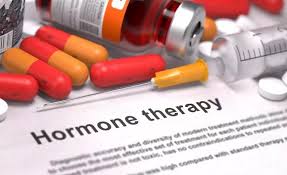And yet the conclusions of the study in 2002 were rapidly debunked. A re-examination of its results showed that women aged between 50 and 59 who took HRT were 31% less likely to die of any cause during their five to seven years of treatment with the hormones than those who did not. For a woman who has had her uterus removed or who starts menopause before the age of 45, HRT greatly reduces the risk of heart disease, a life-saving effect. It can also prevent osteoporosis, a disease in which bones become brittle. One study of postmenopausal American women over a ten-year period found that, of those who had had hysterectomies, between 18,000 and 91,000 died prematurely because they had shunned hormone therapy. HRT also lowers women’s risk of uterine and colon cancers. Fears about the increased risks of breast cancer have been overplayed.

Hormonal therapies are typically off-patent and inexpensive. In Britain the annual price tag is only £125 ($165); in the United States generic pills are similarly affordable. And the benefits vastly outweigh the costs. Nothing else controls the symptoms of menopause so well, and a heightened risk of any one disease must be weighed against the lowered risks of contracting several others. Hormonal therapies are not appropriate for all menopausal women. For some, the symptoms are insufficiently severe for it to be worthwhile. The treatment might not be suitable for those with liver disease, or a history of blood clots, or breast or ovarian cancer. But for serious symptoms, alternative treatments are worse than taking HRT. Herbal supplements, yoga and faddy diets— to which some turn in the absence of medical help—may alleviate the unpleasantness of menopause but do not offer the long-term health benefits of HRT. Moreover, the symptoms can portend serious health problems in the future. Doctors could usefully prescribe HRT far more widely than they do today.
译文由可可原创,仅供学习交流使用,未经许可请勿转载。












